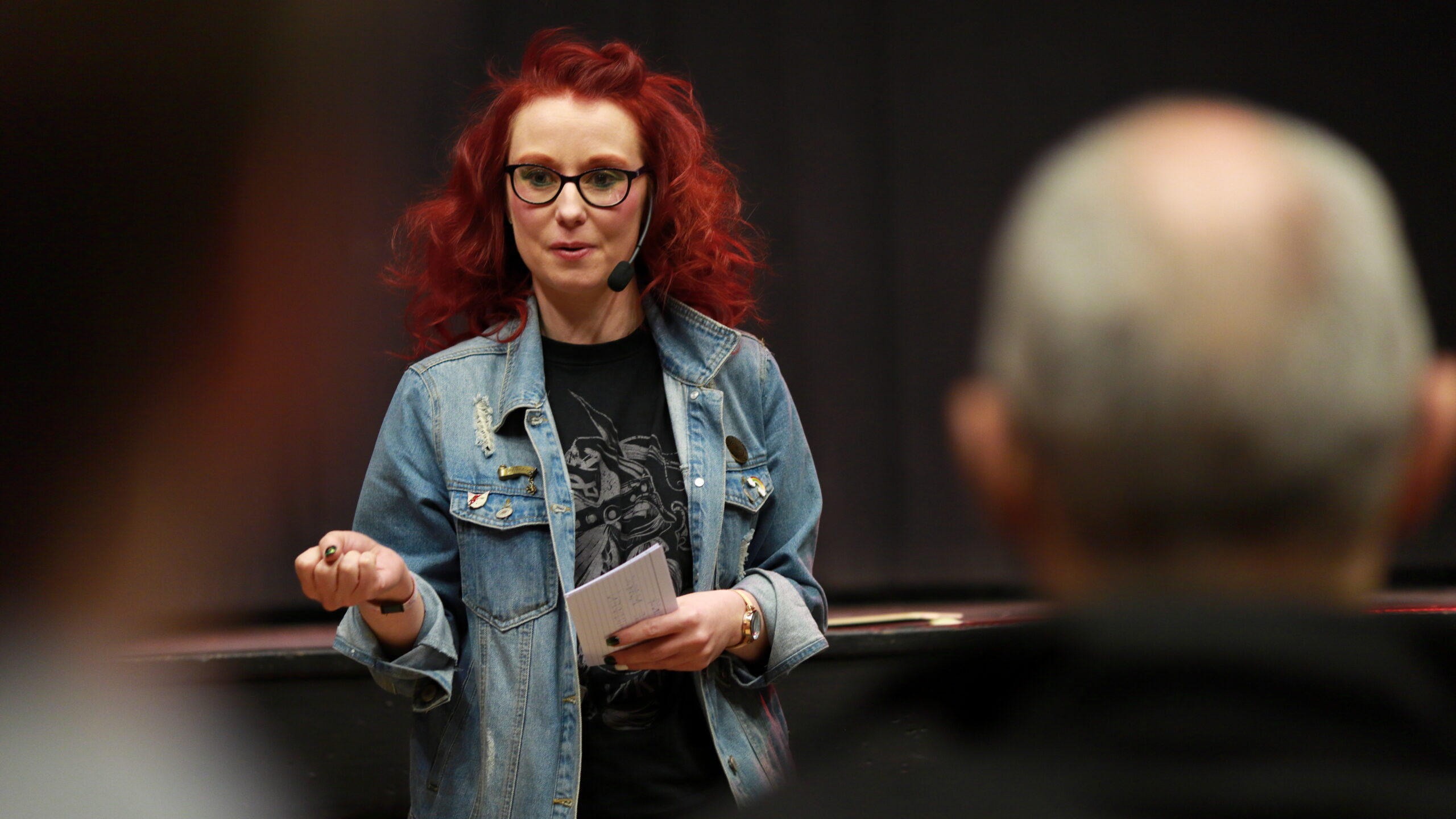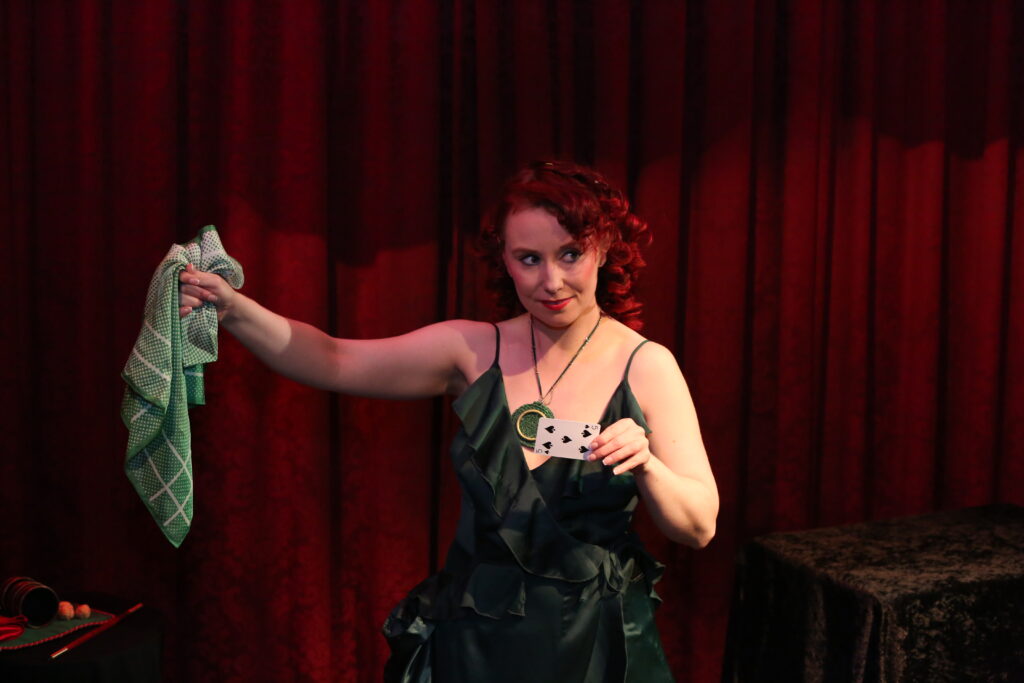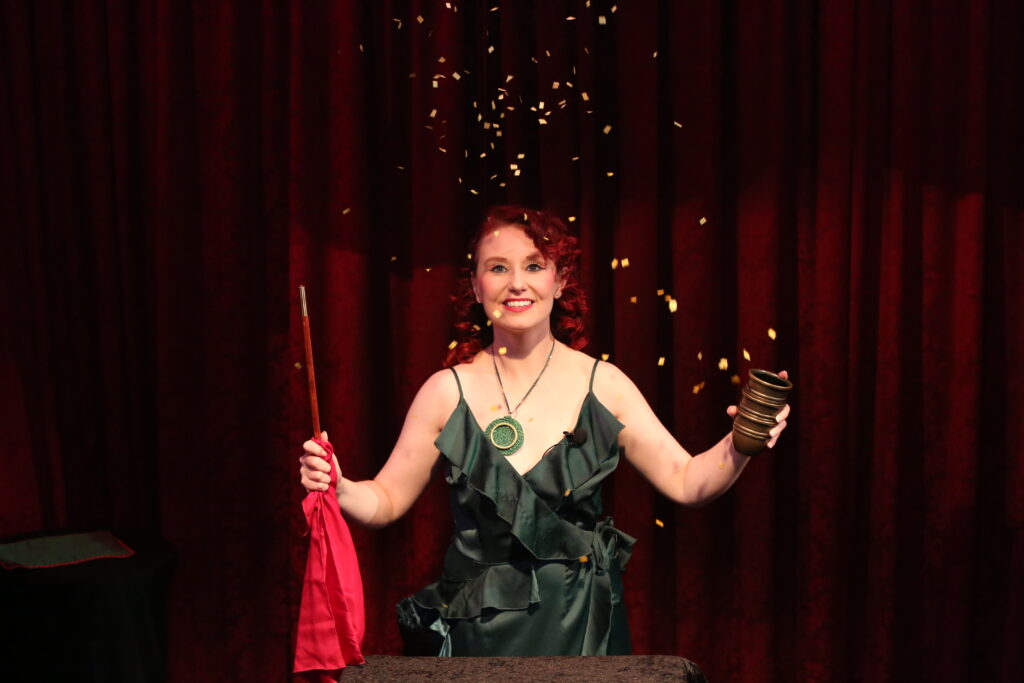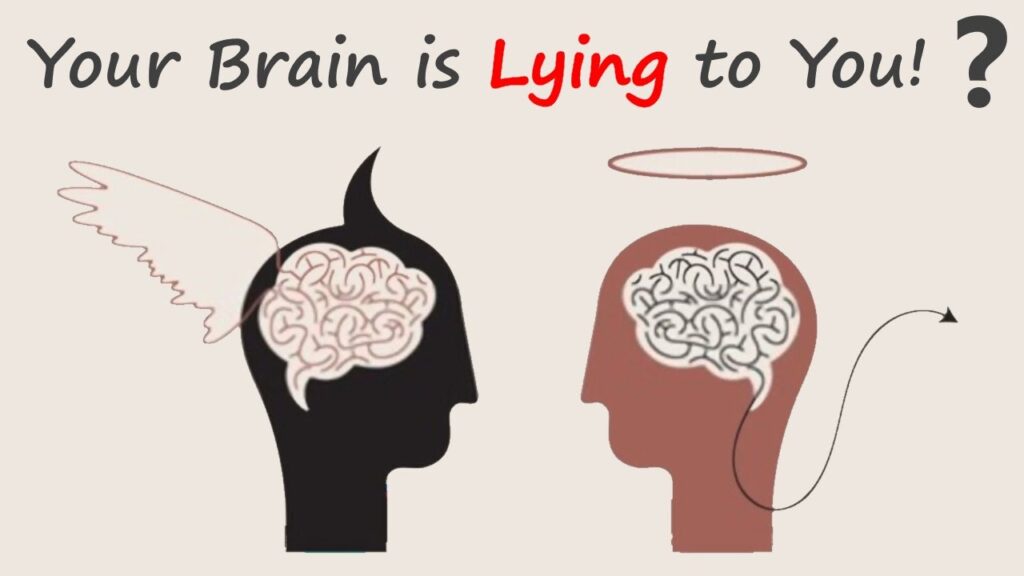The Feedback Loop

Feedback is such a sensitive subject to discuss. However, I feel that it is worthwhile discussing openly here in my blog for several reasons.
The biggest one is that we are not taught how to give feedback in an appropriate way to one another.

I’m sure some of you have heard of the phrase “there’s a time and a place for that?”
Feedback is one of those areas that falls under this category – particularly where performance is concerned.
Fight or Flight
Through performing and sharing within my own community, I have noticed a trend with feedback particularly with magicians that is not healthy.
If this post helps to make people more aware of their actions when giving feedback then the magic community might become a nicer place to be in.
Ultimately, it will become a better environment mentally for all.
Opinions Matter
An opinion can make or break someone, depending on when it is received. Don’t get me wrong, we all have our points of view and are allowed them. However, it is important to realise the time in which you choose to express your thoughts can have a varying degree of effect on someone.
I discovered this video on instagram recently. This video is not specifically magic related but performance related.
Take a look…
https://www.instagram.com/reel/CpeE-zttFHg/?utm_source=ig_web_copy_link
Performance is immersive
Magic, like all other art forms is a fascinating, emotional tool. Performance can inspire, shock, gratify and also change the way we think of something.



Now here’s a word I learnt at college that really works in this context and I am finally get to use it…
Performance is also an Ephemeral entity!
It means, it is here today but gone tomorrow – for the audience at least. That’s what is so special about expression. No-one performance is ever exactly the same. It can be good one day, terrible the next. I suppose this is one of the reasons why most people choose to tread the boards in the first place. It’s unpredictability.
※
We also must remember that when people perform on stage they are actively sharing a part of their soul.
A personal opinion from an audience member (if vocalised, immediately after an artist has offered themselves on stage) is almost like receiving a swift punch to the face!

Particularly if the opinion is a negative one.
Magic Conventions
Attending magic events I see (quite often) after a lecture or performance has ended, people rush up to the artist on stage and begin breaking down their act. What they liked, what they didn’t and how they (watching in the audience) could improve it.
It’s a natural reaction. The audience wants to be a part of what they just witnessed on stage right?
Personally, I don’t think the exact moment after an artist has opened their soul to you is the best moment to talk to them about what you think about their work, good or bad. It’s not that your thoughts aren’t valid, or wanted, it’s just not the right time. And could potentially hurt the person. Perhaps after hearing someone’s impression they might never get up and perform on stage again. Or believe that their work is worthwhile.
How do we solve the problem?
So how do we performers learn to deal with this better? Or indeed how do we express to artists we see performing how we feel?

Remember our brain’s are fickle things.
In giving someone feedback, the person with it gets their thoughts out of their head immediately and are satisfied. It’s done. It’s very unlikely that the person with an opinion returns to that thought once it has been expressed to another.
The ones giving the feedback can simply walk away and continue happily with their lives.

An artist receiving feedback will begin to process it immediately. And speaking from experience, it’s simply impossible to do this after finishing a show with adrenaline pumping through your veins.
People receiving feedback end up living with it far longer after it has been given in this format.

In the instagram video above the protagonist recognised that upon seeing his friend who was so hyped up from her performance, there was absolutely no point in confronting her with his truthful opinion of the show. It would do neither of them any good. At that moment.
It’s reasonable to want to tell people what you think, but a little thought as to when you say it goes a long way to helping an artist feel appreciated and not attacked.
Here are some suggestions with feedback.
1. Write it down and give it as a gift.
It’s easy to believe that the only way to give feedback is verbally. I mean, it’s how we communicate! But there is also power in writing an idea or thought down on a piece of paper and handing it to the artist to read when THEY are ready to do so.
I think that is ultimately the point of this blog post.
Feedback is a thing that an artist needs to be ready for. And that time can only be decided upon by the person receiving it. Not the giver. And as givers we should be more aware of this and our actions. Or rather reactions to seeing something on stage.
Writing your thoughts down, means that when an artist reads them there is distance from the initial opinion. And emotionally it is so much easier to process.
2. It’s ok to say no!
Sometimes we feel compelled as artists to always say yes when asked “would you like some feedback” even though at that moment the proper answer should be “hell no” because our brains are not logically ready to process the information given.
It is ok to say to people, “I really appreciate what you are trying to say, but right now, just after my show I can’t process this information properly. I really want to hear your thoughts but perhaps we can discuss it later or tomorrow?”
It’s at this point in my blog I realise I have truly become an adult by writing that sentence above. Actually I’ll become a proper adult when I action this myself!
But it is true. Remember, it’s up to YOU when you want receive feedback from people. And you don’t have to just take it whenever it happens because you want to be friendly. There is a time and place that is appropriate for all involved in the exchange.
3. Time
Our reactions to something we just read or saw can be very raw. A feeling brought on by seeing something is an unprocessed thought. A bit like a reflex reaction.
Emotions can cause, when they have had very little time to be processed, situations that are tense, stressful and awkward.
I ask you to think about your thoughts more, give them time to settle in rather than letting them erupt into the world.
The next day when you access your thoughts as a whole, you mightn’t feel the same way. Or indeed, give the same feedback you would have immediately after seeing the performance you did.
4. Reality versus Vision

When we give feedback it’s important to remember that you are not reporting upon what you just saw but you’re expressing a vision of it. And that vision is YOURS.
Thoughts are not a real representation of what you just saw but how your brain has processed it. And that is another reason why feedback should be written down and given rather than expressed vocally.
A vision by definition is an idea or mental image of something. It is a perception made in the mind. And as givers and receivers of visions, we cannot rely on them as truth.
Summary
Ultimately, this post is to remind us all to be mindful of feedback, know that there are good and not so good ways to give and receive it and I hope that after reading this everyone will think of better ways to express thoughts in social situations promptly after seeing a magic performance.
Let’s create a kinder world in our magic community. One where everyone can learn and grow together!

Wow, I hope I can keep this in mind, when giving or recieving feed back, I too have recieved feed back that really hurt straight after a performance, it made me question what I was doing and why I was doing it, my comment was never again would enter a magic competition. So your blog is so important for people to read and take on board. On this coming Sunday I am judging a photographic competition that I have to give feedback to all entrants images, I have never been nasty (I hope) but I will really think how I give the feedback before I do !!
Thank you Nicola
Thanks Geoff. Yes giving feedback is as difficult or rather should be as taking it. It’s a sensitive topic and I hope this blog just sheds light on it to others out there in terms of giving more thought to it in the future.
As a rule, I only give feedback when asked. I think it’s presumptuous when people think they are good enough to have input on your act. I also, only listen to feedback of those whose ideas that I admire or those who are signing my checks.
The people with the best perspective on your act are also the people who tend to know the when and the how of feedback. 💕
Exactly – well put. ❤️